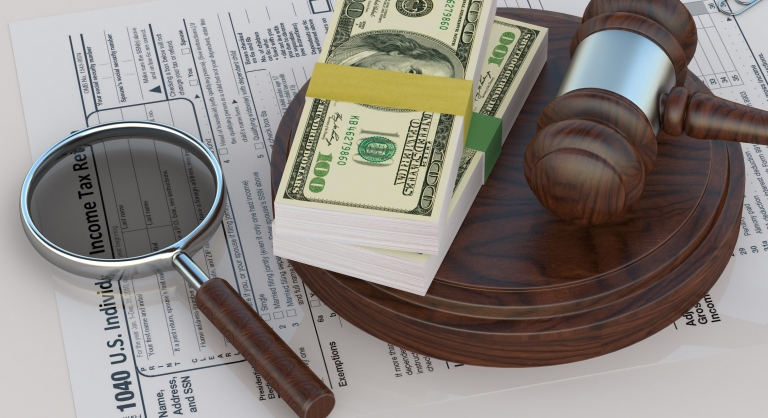Tax Controversy Update: Innocent Spouse Relief and Responsible Party Assessments
Part 1: The Joint Return and Innocent Spouse/Injured Spouse Liability
IRC §6013 imposes joint and several liability on spouses who choose to file a joint individual income tax return. As a general rule, married persons who file jointly end up owing less tax than if they chose to file as married persons filing separately, so the default choice among most return preparers, if not all, is to prepare a joint return.
- What happens if the return shows a significant balance due when it is finally prepared?
- Does the return preparer have an obligation to inquire whether, when and how their joint return clients are going to pay the balance?
- If one spouse is an unemployed homemaker, does the return preparer have an obligation to tell the unemployed spouse that s/he is jointly and severally liable for the amount due?
- If the “breadwinner” chooses to leave town without paying off the liability, will s/he be held liable for the entire amount due?
- Are these obligations different if the return preparer happens to be a lawyer, CPA, or Enrolled Agent?
In Part 1, we present the framework for claiming innocent spouse relief pursuant to IRC §6015 and how and when to claim injured spouse relief. We also explore the preparer’s obligations to inform his clients about the potential pitfalls of executing a joint tax return and whether the preparer should tell one spouse that s/he should seek separate counsel.
Part 2: Liability of Third Parties for Unpaid Taxes – the “Responsible Person”
Becoming an officer, shareholder, partner, or member in an organization can have devastating consequences, as well as significant financial rewards. If that organization has outstanding employment taxes or has not collected and paid over its sales and use tax obligations to the appropriate tax authority, certain members of that organization, whether they were responsible for making sure those obligations were met or not, can be held liable.
- What should advisors tell their clients about these obligations?
- How are the Massachusetts rules and procedures different from the IRS?
- What should preparers look out for when preparing corporate income tax and informational returns?
- Does the preparer have an obligation to inform an unsuspecting employee that s/he could face “Responsible Person” liability?
In Part 2, we explain what the government must prove to hold someone liable as the “Responsible Person” highlighting the significant differences between the IRS and DOR’s burden of proof and how to challenge an assessment. The discussion will also include when lenders can be held liable for a corporate borrower’s employment tax withholdings.
1.5 CE credits available from the CFP Board; Program is eligible for CPE credits with the Massachusetts Board of Public Accountancy.
Breakfast will be served.
There is no cost to attend.
June 22 – Boston
8:00 a.m. – 10:00 a.m.
Boston College Club
100 Federal Street
36th Floor, Harborview Room
Boston, MA 02210
June 29 – Westborough
8:00 a.m. – 10:00 a.m.
DoubleTree Hotel
5400 Computer Drive
Nugget Wellington Room
Westborough, MA 01581
Categorized: Events + Recordings


